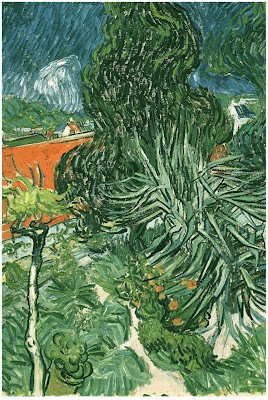Olive Grove, by Vincent van Gogh
He went out under the grey leaves,
all grey and indistinct, this olive grove,
and buried his dusty face
in the dust of his hot hands.
It has come to this. Is this how it ends?
Must I continue when I'm going blind?
Why do you want me to say you exist
when I no longer find you myself?
I cannot find you any more. Not within me.
Not in others. Not in these stones.
I find you no longer. I am alone.
I am alone with everyone's sorrow,
the sorrow I tried to relieve through you,
you who do not exist. O unspeakable shame.
Later they would say an angel came.
New Poems






























